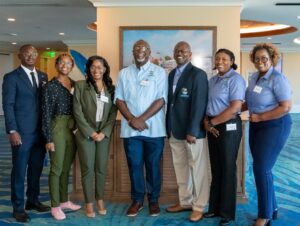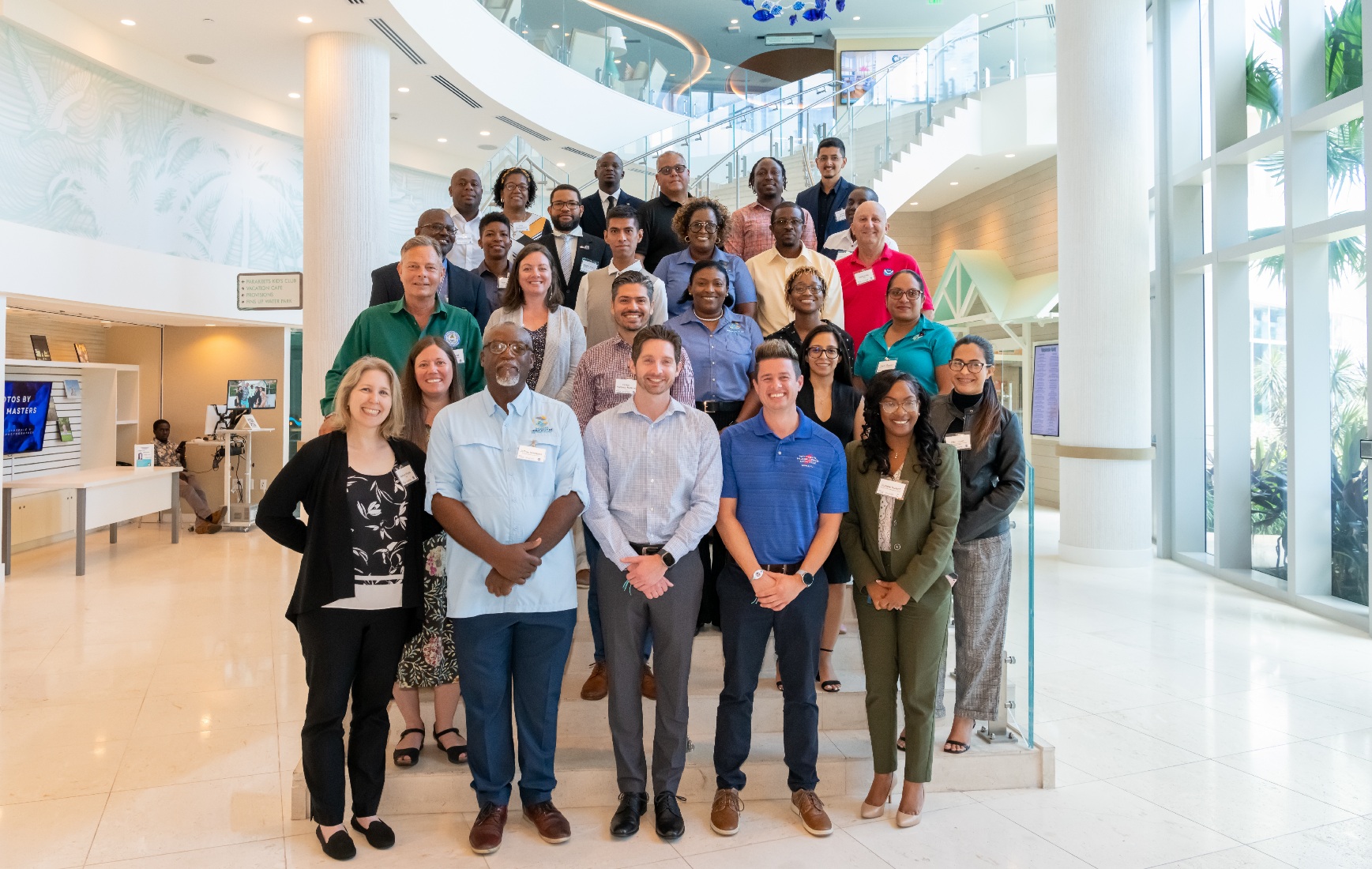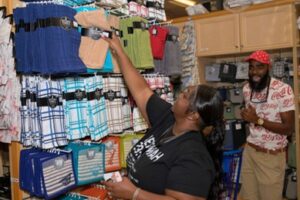By MATT MAURA
Bahamas Information Services
#NASSAU, The Bahamas, May 20, 2023 – Meteorologists, climatologists, oceanographers, Geographic Information Services experts, Emergency Managers and Planners, and storm surge experts from the Caribbean, Central America, and the United States of America, have joined their Bahamian counterparts in New Providence for the Bahamas Department of Meteorology’s Storm Surge Workshop.
The workshop, which opened Tuesday (March 16) and will conclude Thursday (March 18), drew participants from the Turks and Caicos Islands, Cayman Islands, Jamaica, St. Maarten, the Dominican Republic, Mexico, Curacao, Belize, Costa Rica, Antigua and Barbuda, Trinidad and Tobago, and The Bahamas.
Included in the activities observing Disaster Preparedness Month throughout the month of May in The Bahamas, the event is facilitated by storm surge experts from the Storm Surge Unit of the National Hurricane Centre in Miami, Florida. The workshop is sponsored by the University for Corporation and Atmospheric Research (UCAR), located in Boulder, Colorado, U.S.A.
UCAR is a US non-profit consortium of more than 100 colleges and universities providing research and training in the atmospheric and related sciences and manages the National Centre for Atmospheric Research (NCAR) on behalf of the National Science Foundation. UCAR is a hub for the Earth system sciences, and a gateway to cutting-edge resources and services. Its community programmes offer essential resources and services to support the Earth system sciences.
Local, regional and global researchers say storm surge associated with tropical storms and hurricanes, when combined with waves, is one of the greatest threats to life, property and the environment — especially for low-lying, coastal areas such as The Bahamas.
Storm surge is primarily caused by the strong winds in a hurricane or tropical storm. Additional impacts of storm surge include extensive property loss, erosion of beaches, damage to coastal habitats, and undermining of the foundations of infrastructure such as roads, docks, bridges and government buildings in the case of The Bahamas. Storm surge also poses a serious threat of death by drowning.
Acting Director of The Bahamas Department of Meteorology, Jeffrey Simmons, said one of the expected outcomes of the workshop is two-fold — the development of a Storm Surge Atlas for The Bahamas, and acquiring the tools to better forecast storm surge.
“At the end of the day we definitely want to be able to have the tools to better forecast storm surge,” Mr. Simmons said. “We are looking at developing a model so that whenever we have a hurricane (or tropical storm) approaching, we can just put in all of the information pertaining to real time information with regards to intensity, size, its movement and then it will actually give us a map of how deep we can expect water in certain areas on certain islands that would be affected. It will also give emergency managers and planners, government decision-makers with more real-time data on a number of matters ranging from possible evacuations to shelter locations.”
Dr. Cody Fritz, PhD., is a Storm Surge expert and the Head of the National Hurricane Centre’s Storm Surge Unit. He spoke of the dangers associated with storm surge.
“We’ve done a lot of studies that have shown historically that storm surge is the leading cause of death on any given day for a hurricane and it has really been the Hurricane Centre’s position to work towards developing scenarios, introducing hypothetical scenarios to kind of understand the true vulnerability from storm surge,” Dr. Fritz said.
“Knowing that storm surge is a serious threat to loss of life and has historically been that leading cause of death in a tropical cyclone, it has been our approach to communicate just how threatening storm surge can be in any given event.
“I would really tell people in The Bahamas to heed those warnings that come as associated with tropical cyclones and hurricanes, and storm surge especially. You are low-lying and you have a lot of vulnerabilities, significant risk to storm surge in this area,” Dr. Fritz added.
PHOTO CAPTIONS
BIS Photos/Anthon Thompson
Header: Robbie Berg, NOAA/NWS/National Hurricane Center; Cody Fritz, NOAA/NWS/National Hurricane Center; Kathryn Payne, University Corporation for Atmospheric Research; Katie Chapman, University Corporation for Atmospheric Research; Raegan Kerfoot, University Corporation for Atmospheric Research; Jeffrey Simmons, Acting Director/Bahamas Department of Meteorology
1st insert: Members of the Bahamian delegation attending the Storm Surge Workshop which opened in New Providence Tuesday, May 16 at the Margaritaville Resort. The workshop is sponsored by the University for Corporation and Atmospheric Research located in Boulder, Colorado, United States of America. Pictured (from left) are: Dr. Brandon Bethel, University of The Bahamas; Jade Pearce, National GIS Centre, Ministry of the Environment; Suzanne Russell-Dorsett, NEMA/GIS Specialist, Grand Bahama; Jeffrey Simmons, Acting Director, Bahamas Department of Meteorology; Geoffrey Greene, Chief Meteorologist, Bahamas Department of Meteorology; Shayvonne Moxey-Bonamy
Chief Meteorologist/OIC, Bahamas Department of Meteorology, Grand Bahama Office; and Mary Butler, Chief Meteorologist, Bahamas Department of Meteorology.
2nd insert: Meteorologists, Hazard and Disaster Management Specialists, and Storm Surge Specialists from around the Caribbean for the 2023 Storm Surge Workshop.


















